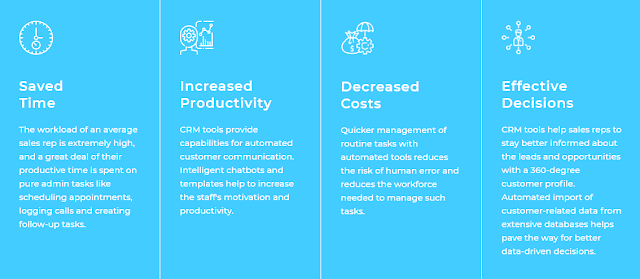What is Sales Automation?
Account data updates, sales logs, opportunity tracking, sales team tracking, trying to get all of this information under control leaves most overwhelmed.
These are primarily administrative and data entry tasks that sales reps, managers, and executives must perform daily, weekly, or monthly. A Sales CRM can help automate and optimize these time-consuming and tedious manual tasks in the sales process so that your sales team can focus less on administration than on sales.
A majority of B2B companies, 65% year over year, are significantly increasing their budgets to invest more in sales technology. More and more customers are using Sales CRMs to completely revise and optimize their sales processes. Technology is practically a competitive requirement today, and companies need to invest in sales productivity solutions to stay in business.
Automating the sales pipeline is the most practical way to improve your sales results by allowing your sales team to focus on what they do best: "sell".
Challenges Faced in Automating Sales Processes
- Complexity involved in moving from legacy systems
A lack of judgment in the transition phase can be expensive because business processes and sales can come to a standstill.
- Lack of technical knowledge
Many end-users of sales automation tools are non-technical people. The result should always be about users, and ease of use or business remains connected to parallel processes that destroy productivity.
- Poor Data Quality and Data Accuracy
The lack of quality data is also one of the main reasons why sales automation does not return on investment. Embedded intelligence capabilities and seamless integration with data entry tools such as Excel and Office significantly improve data integrity.
- Limited Organizational buy-in
The automation of sales cannot be done in isolation and is an organizational change that requires a buy-in of all departments. An effective and holistic sales automation strategy is essential for the success of the implementation.
Return On Investment
Make the switch to Dynamics 365
|


Comments
Post a Comment